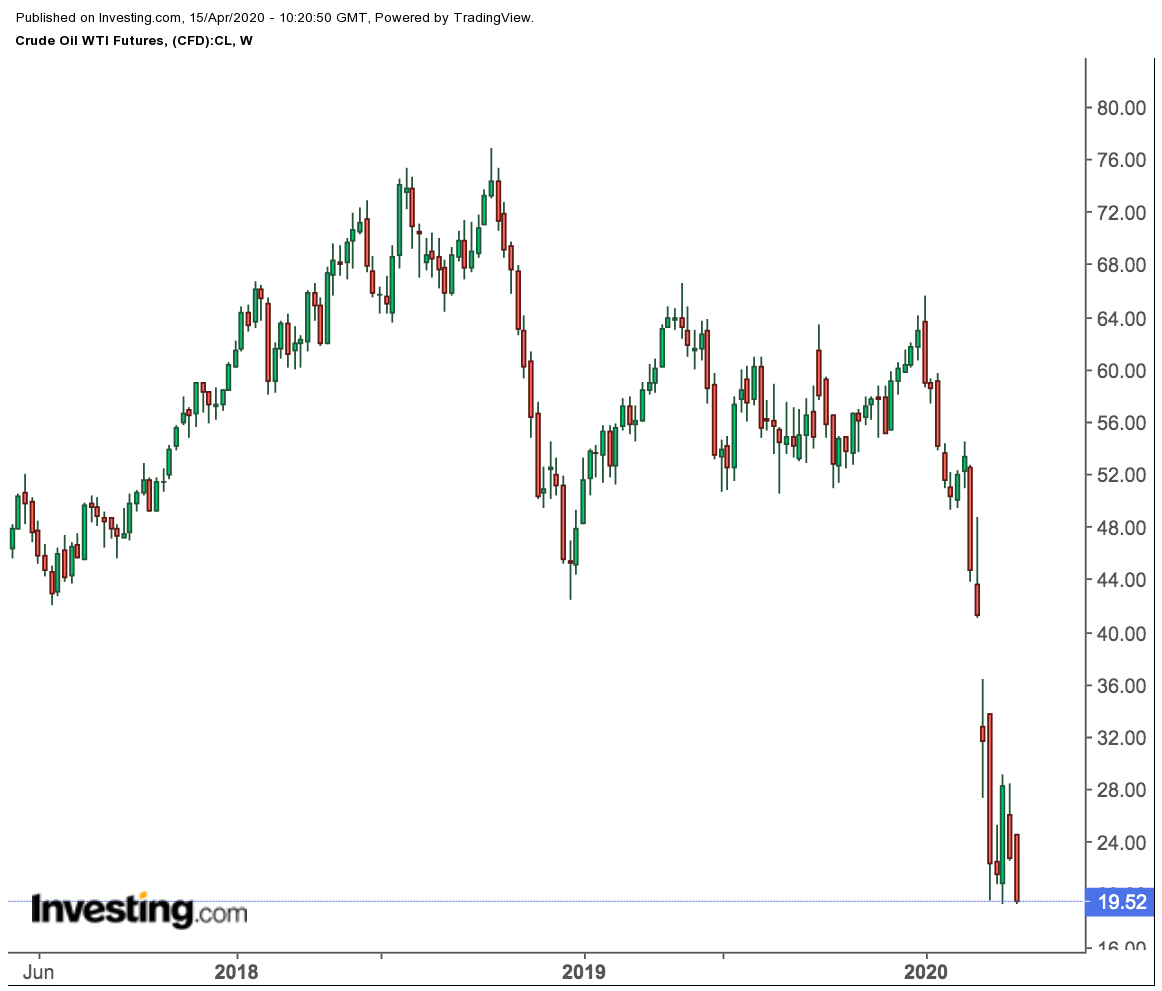On Sunday, OPEC+ came through with a big agreement to cut 9.7 million bpd of oil, while other producers are supposed to provide further cuts. The agreement was hailed as “historic,” due to the large amount of oil the organization agreed to cut from supply starting in May, but the oil markets had a different perspective.
Oil markets were closed on Sunday when the announcement was made and many markets remained closed on Monday for Easter Monday, but oil prices did not rise as a result of the agreement. In fact, they dropped later in the week, revealing the lack of confidence the markets had in last weekend’s big cut announcement.
Do producers have any tricks left to try and raise oil prices? Let’s look at some possible strategies, even the most unlikely.
Blame Game
Try to restore the markets’ confidence in producing countries by blaming the current leadership and removing them for their positions. Russian president Vladimir Putin could replace his energy minister, Alexander Novak, but there is no sign that he is disappointed with Novak.
Saudi Arabia’s King Salman could blame his oil minister (and one of his sons), Prince Abdulaziz, who led the policy to overproduce and lower prices in early March. Likewise, the OPEC body could blame the current OPEC Secretary General, Mohammed Barkindo, and fire him.
If presented to the markets as a correction in leadership and policy, it could help raise prices a little and stabilize the situation. There has been more blame placed on Saudi Arabia for the current situation due to its early march decision to increase production to 12 million bpd, so blaming and firing Prince Abdulaziz might restore some of the lost confidence in Saudi Arabia’s commitment to oil price stability.
Create Military Tension
Create a military tension or a conflict in an oil-producing region. This move isn’t guaranteed to raise prices as tanker seizures and sabotage in the Persian Gulf region haven’t done much to elevate prices in the recent past, but in theory it could raise prices.
In fact, on Tuesday, a Chinese-owned tanker in the Gulf of Oman heading to the port in Jubail, Saudi Arabia was reportedly boarded by armed persons and steered towards Iran.
However, the incident did not spark any notice from markets, because they were preoccupied and the vessel was apparently released a short time later. However, the incident should remind traders that the same political and military tensions that existed before the coronavirus catastrophe are still at play.
Increase Global Storage Capacity
Major producers (and possibly importers who want to buy for storage) could collaborate and push to drastically and quickly increase global storage capacity. Producers could work with importers to facilitate which construction of new storage facilities, in conjunction with favorable deals on oil purchases to fill them.
Countries like the U.S., Russia, China, India and Saudi Arabia have the ability to do this. Building storage facilities, especially in importing countries like China and India, could help increase demand numbers for May, June and further as well as alleviate fears of a forecasted oil storage crisis that have been weighing on oil prices.
Imported countries would only do this if they get a very good deal on the oil, but it may be worthwhile for producers to show increasing global demand. The point is not so much to make money immediately, but to improve demand numbers.
Self-Sacrifice
One or more major autocratic producers make a sacrifice. A sacrifice from one or more of the top producers could shock the markets intro higher prices if it entailed another 2 to 5 million barrels cut for each country participating. This situation would have to come from a country that is legally able to mandate cuts nationally through a centralized office.
That would be a country like Saudi Arabia, Russia or Iraq. It is an unlikely scenario, and one that would only come out of desperation for a country that needs to see higher prices and demonstrate its own power over the markets.
But such a country would suffer while its competitors benefited, and no one wants to do that. Furthermore, given the markets’ lackluster response to Sunday’s cuts, it would be a risky move.
Note: this option would not be like the scenario in which Venezuela has been forced to drastically cut its production over the last few years. While several producing countries are set to face budgetary problems in the coming months, there is no indication any of them are under the threat of imminent Venezuela-type economic collapse.
Force an End to Lockdowns
Finally, producing countries could push for the major consuming nations to declare an end to the policies that have kept their economies locked down. These policies, designed to mitigate the spread of coronavirus, have been destroying oil demand as billions of people have stopped commuting, working, manufacturing and travelling.
This might run contrary to the advice of some medical and epidemiological professionals, but there are plenty of experts these producing countries could draw on to support a quick return to economic life.
The Only Options
These are the options remaining for desperate producers. One and a half months ago, no one expected prices to be this low. If they don’t recover soon, the producer’s problems will only get worse. National budgets will be slashed, debt will pile up and layoffs will increase. Otherwise, they can wait and pray.
